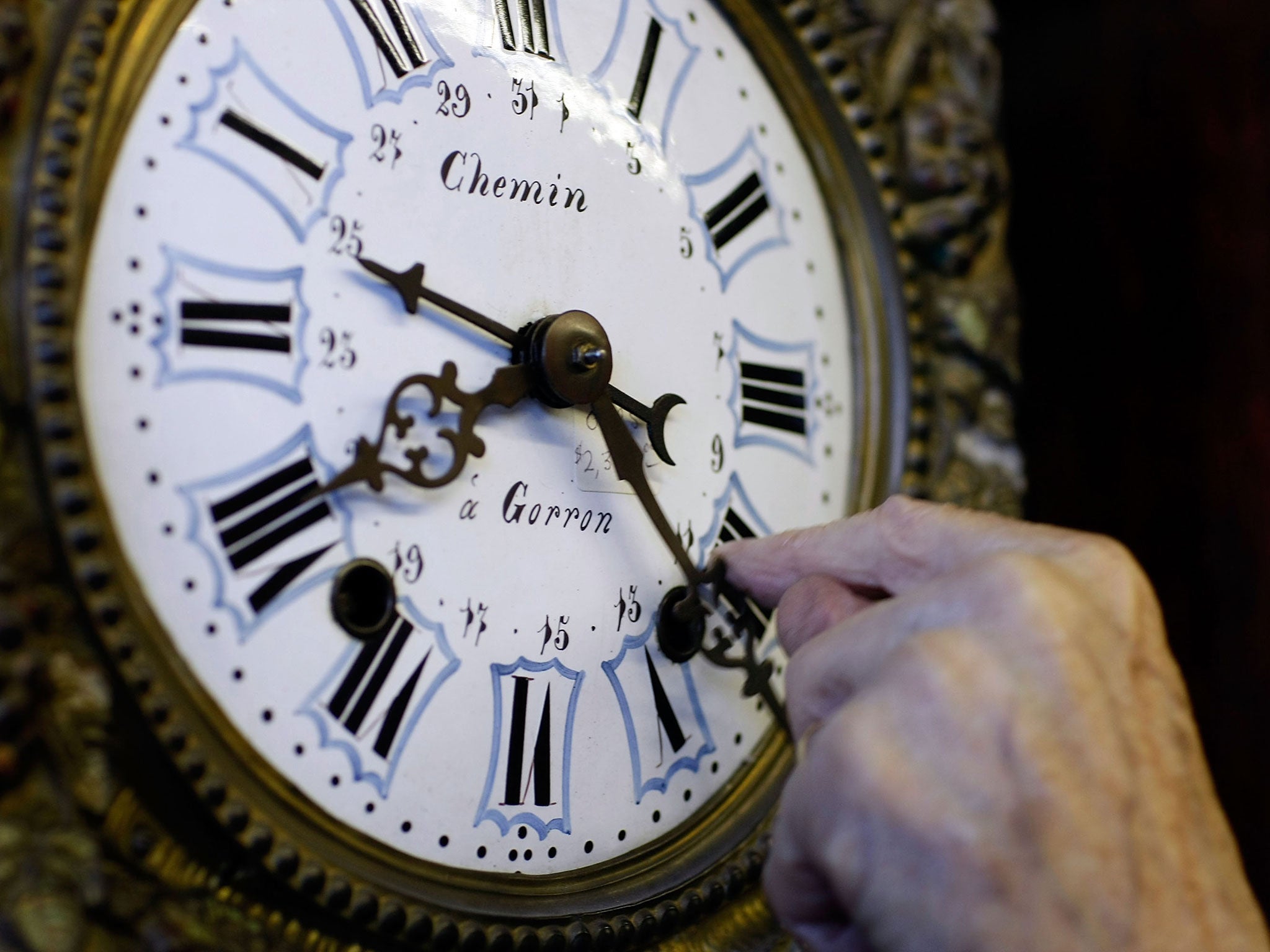When do the clocks go back in 2015?
Clocks will 'fall back' at 2am on Sunday morning this weekend

Your support helps us to tell the story
From reproductive rights to climate change to Big Tech, The Independent is on the ground when the story is developing. Whether it's investigating the financials of Elon Musk's pro-Trump PAC or producing our latest documentary, 'The A Word', which shines a light on the American women fighting for reproductive rights, we know how important it is to parse out the facts from the messaging.
At such a critical moment in US history, we need reporters on the ground. Your donation allows us to keep sending journalists to speak to both sides of the story.
The Independent is trusted by Americans across the entire political spectrum. And unlike many other quality news outlets, we choose not to lock Americans out of our reporting and analysis with paywalls. We believe quality journalism should be available to everyone, paid for by those who can afford it.
Your support makes all the difference.The clocks are due to go back this weekend. Here is everything you need to know:
When do they go back?
At 2am on Sunday morning, 25 October.
Why do they go back?
It was thought putting the clocks back – first implemented during World War One in 1916 – would reduce the nation’s coal usage by cutting down the number of working hours in darkness.
Since then, we have stuck with the system despite some opposition. However, during the Second World War we moved the clocks again to double summer time (GMT + two hours) in a similar attempt to increase productivity.
What is this change called?
When the clocks go back we revert to Greenwich Mean Time (GMT), and when they go forward for the summer it is known as British Summer Time (BST).
Who came up with the idea?
William Willett in 1907. Unfortunately, he failed to live long enough to see his idea come to fruition, dying in 1915. He felt Britons were wasting valuable morning hours and proposed setting the clock forward by 80 minutes in four steps over April, and then reversing it in September.
How much difference does it really make?
On the summer solstice the UK enjoys 16 hours and 50 minutes of sunlight – but this high falls dramatically to just seven hours and 40 minutes during the winter months.
Join our commenting forum
Join thought-provoking conversations, follow other Independent readers and see their replies
Comments